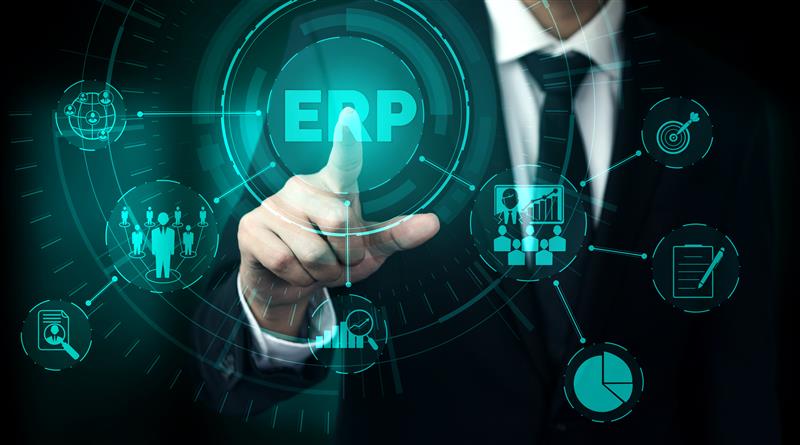Blog Insights
10 Problems ERPNext Can Solve for Dubai Businesses

10 Problems ERPNext Can Solve for Dubai Businesses
In Dubai, you’ve got VAT regulations to follow, multiple currencies to deal with, maybe a few branches across the UAE, and probably a dozen spreadsheets that nobody can find when you actually need them.
We’ve worked with enough businesses here to know that most are dealing with the same headaches – scattered data, manual processes that eat up time, and systems that just don’t talk to each other. That’s where ERPNext Dubai solutions come into play
Let us walk you through 10 actual problems that businesses face in Dubai and how ERPNext handles them.
1. Disorganized Financial Management
Most businesses here in Dubai start with QuickBooks or even just Excel. That works fine when you’re small. But once you’re dealing with multiple projects, different currencies (because half your suppliers are international), and trying to reconcile everything at month-end? It becomes a nightmare.
ERPNext in Dubai handles all of this in one place:
- Your chart of accounts, invoicing, and payments are all connected
- Multi-currency transactions are automatic (super helpful when you’re dealing with AED, USD, EUR, and whatever else)
- Bank reconciliation doesn’t require a full day of your accountant’s time anymore
- You can see your cash flow in real-time, not just at the end of the month
The best part? Everything links together. When you create an invoice, it automatically updates your accounts. When a payment comes in, it’s tracked. No more double-entry in different systems.
For businesses operating in Dubai Media City, DIFC, or any free zone, having clean financial records isn’t just convenient – it’s essential for audits and compliance.
2. Manual Inventory Tracking
If you’re still counting stock with clipboards or updating Excel sheets, you already know the pain. Items go missing, you run out of popular products, or you find out you’ve been sitting on dead stock for months.
ERPNext implementation fixes this with proper inventory management:
- Real-time stock levels across all your warehouses
- Automatic reorder alerts when stock gets low
- Batch and serial number tracking (crucial for electronics, pharmaceuticals, or anything with expiry dates)
- Barcode scanning support
Whether you’ve got a warehouse in Jebel Ali or retail stores across Dubai Mall and Mall of the Emirates, you can see exactly what’s where. No more “let me check and get back to you” to customers.
3. Inefficient HR Processes
HR in Dubai has its own complications. You’ve got end-of-service benefits to calculate, labor laws to follow, different visa categories, and probably employees from 15 different countries.
Doing all this manually? That’s a full-time job by itself. ERPNext Dubai streamlines it:
- Employee records, contracts, and documents in one place
- Leave management that employees can access themselves
- Payroll that actually calculates gratuity correctly according to UAE labor law
- Expense claims and approvals without endless email chains
- Attendance tracking that integrates with most biometric systems
The self-service portal is also very helpful. Employees can apply for leave, check their payslips, submit expenses, and track their benefits without bugging HR for every little thing.
For companies in business hubs like Business Bay or JLT where you’re growing fast and hiring regularly, having organized HR processes isn’t optional anymore.
4. Poor Customer Relationship Management
You know that customer who called last month about a quote? Where did that conversation go? Was it in Fatima’s email? Or did Ahmad handle it? And did anyone actually follow up?
When your customer data is scattered across email inboxes, WhatsApp chats, and people’s personal notes, you’re losing business.
ERPNext has built-in CRM that actually works:
- Every interaction with a customer is logged and visible to your team
- You can track leads from first contact to closed deal
- Follow-up reminders ensure nothing falls through the cracks
- Sales pipeline shows you exactly where each opportunity stands
- Customer history is right there when they call – no scrambling to remember who they are
In a relationship-driven market like Dubai, having this information organized can be the difference between closing a deal and losing it to a competitor.
5. Scattered Business Data Everywhere
Your sales data is in one system, inventory in another, accounts in a third, and your operations team has their own spreadsheets that nobody else can access.
When your CEO asks “how are we doing this quarter?” it takes three days and five people to put together an answer.
ERPNext implementation partner services solve this by putting everything in one system:
- Sales, purchases, inventory, HR, projects, accounting – all connected
- Reports that pull from actual data, not outdated exports
- Custom dashboards so different departments see what they need
- No more emailing files back and forth
6. Difficulty Managing Multiple Branches
Got a showroom in Deira, another in Sharjah, and maybe a warehouse in Dubai Investment Park? Managing multiple locations without proper systems is chaos.
You need to know what’s happening everywhere, but you can’t be everywhere at once.
ERPNext in Dubai handles multi-branch operations smoothly:
- See performance across all locations in real-time
- Transfer stock between branches with proper tracking
- Each branch can have its own users but everything rolls up to central reporting
- Different pricing or operations rules for different locations if needed
Whether you’re managing retail stores across the Emirates or service centers in different areas of Dubai, you can finally have visibility without micromanaging.
7. Lack of Project Oversight
If you’re in construction, consulting, events, or any project-based business, you know how quickly things can spiral. Projects go over budget, timelines slip, and by the time you realize it, you’re already in trouble.
ERPNext gives you proper project management tools:
- Track time and expenses against each project
- See if you’re on budget or heading for trouble
- Assign tasks and monitor progress
- Bill clients based on actual time or milestones
- Generate profitability reports per project
For businesses working on projects across Dubai – whether it’s fit-outs in Downtown, events at DWTC, or installations across various sites – this visibility is crucial.
You can spot problems early instead of discovering them during final billing when it’s too late to fix anything.
8. Compliance and VAT Challenges
VAT in the UAE isn’t going anywhere, and penalties for getting it wrong aren’t cheap. Most businesses are still figuring out the whole VAT thing, especially with different rates, exemptions, and reverse charges.
ERPNext Dubai implementation include VAT compliance features:
- Automatic VAT calculation on transactions
- Proper VAT codes for different scenarios
- VAT reports ready for FTA submission
- Audit trails that tax authorities love
- Integration with VAT-compliant invoicing
The system handles the calculations and record-keeping, so you’re not scrambling every quarter trying to file returns.
9. Delayed Decision-Making
How long does it take to get answers in your business? When you ask “which product line is most profitable?” or “which sales person is actually closing deals?” does someone need to spend two days pulling data?
With ERPNext implementation, reporting is instant:
- Pre-built reports for common business questions
- Custom reports you can create yourself without IT help
- Dashboards that update in real-time
- Mobile access so you can check things from anywhere
Business owners here are busy – dealing with suppliers in China, customers across the GCC, employees from everywhere. Having quick access to accurate data helps you move faster than competitors who are still waiting on their monthly reports.
10. Limited Scalability
Switching systems mid-growth is painful and expensive. But staying with systems that don’t scale? That’s worse.
ERPNext grows with you:
- Handle 10 products or 10,000 products with the same system
- Five employees or 500 – the system doesn’t care
- One warehouse or a dozen locations across the UAE
- Basic features now, advanced modules later as you need them
Starting a business in areas like Dubai Silicon Oasis or Dubai South? You want systems that can handle your growth plans without requiring a complete overhaul every couple of years.
The modular nature means you can start with what you need today (maybe just sales and accounting) and add HR, manufacturing, or whatever else later without switching platforms.
Get Started with ERPNext in Dubai Today
The biggest concern people have about implementing an ERPNext solution is the disruption. “We can’t stop business to implement a new system.”
Fair point. But here’s the reality – the longer you wait, the more painful the mess becomes. And modern implementations don’t require shutting down your business.
You can phase it in module by module. Maybe start with accounting and inventory. Once that’s stable, add HR. Then projects, and so on. This way, you’re not trying to change everything overnight.
Final Thoughts
These 10 problems aren’t unique to any one business. Whether you’re in trading, retail, services, manufacturing, or whatever else, you’re probably dealing with at least a few of these issues right now.
The question isn’t whether ERPNext in Dubai can solve these problems – it can, and businesses across the Emirates are already using it successfully. The question is how much longer you want to keep dealing with inefficient processes, scattered data, and systems that barely talk to each other.






